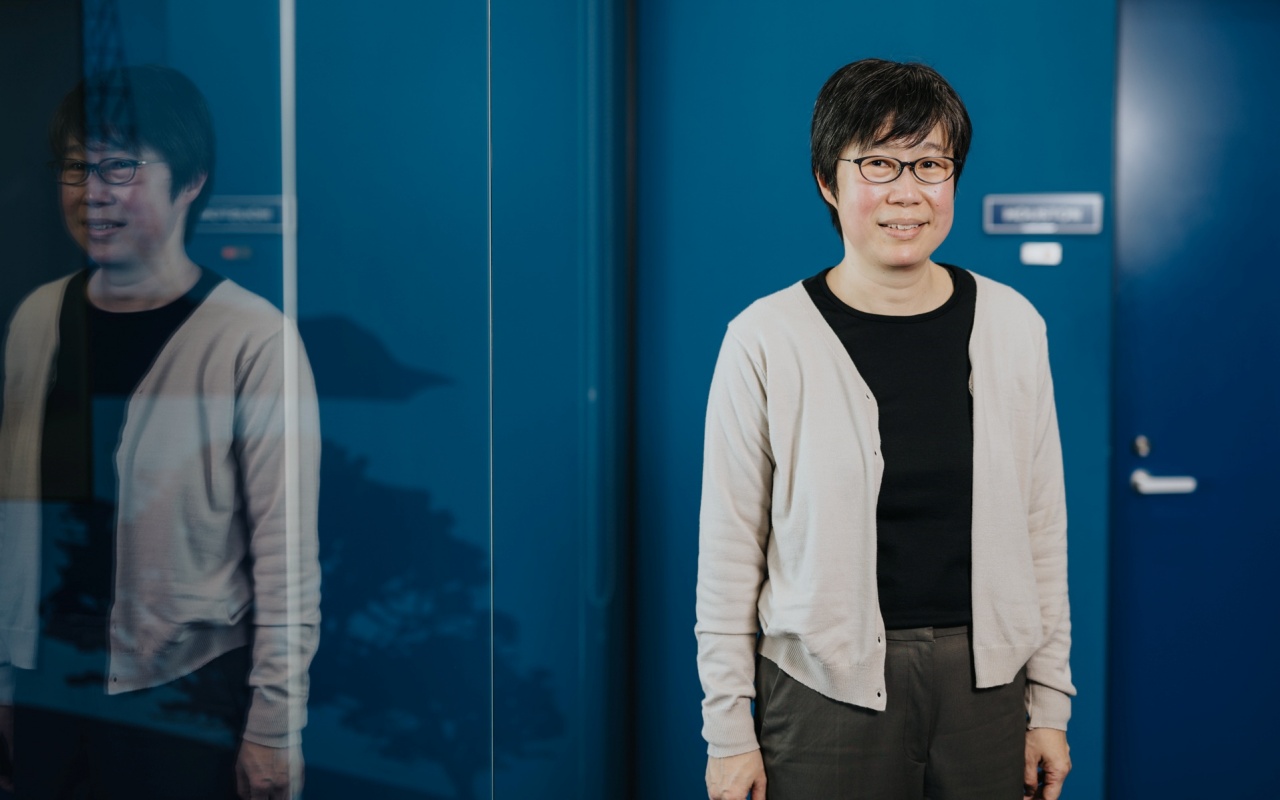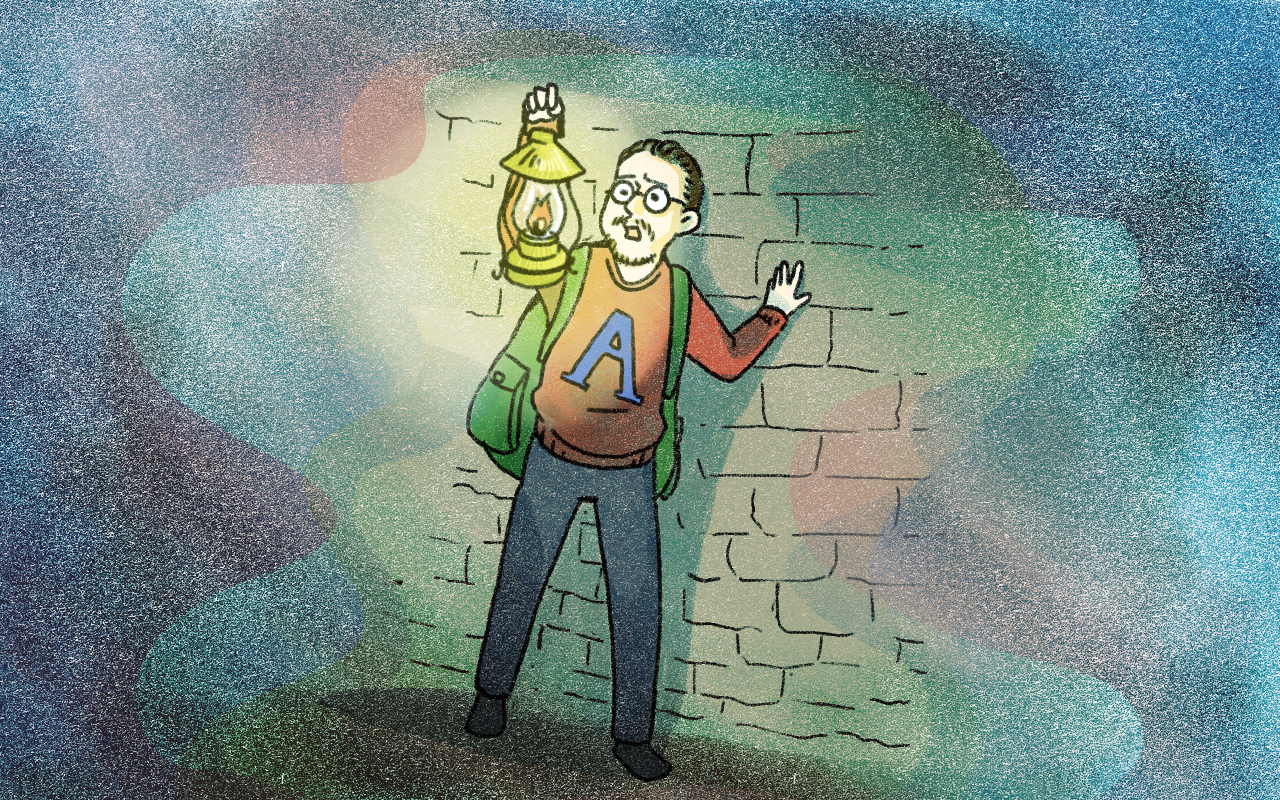Diversity Can Help You Understand Your True Self
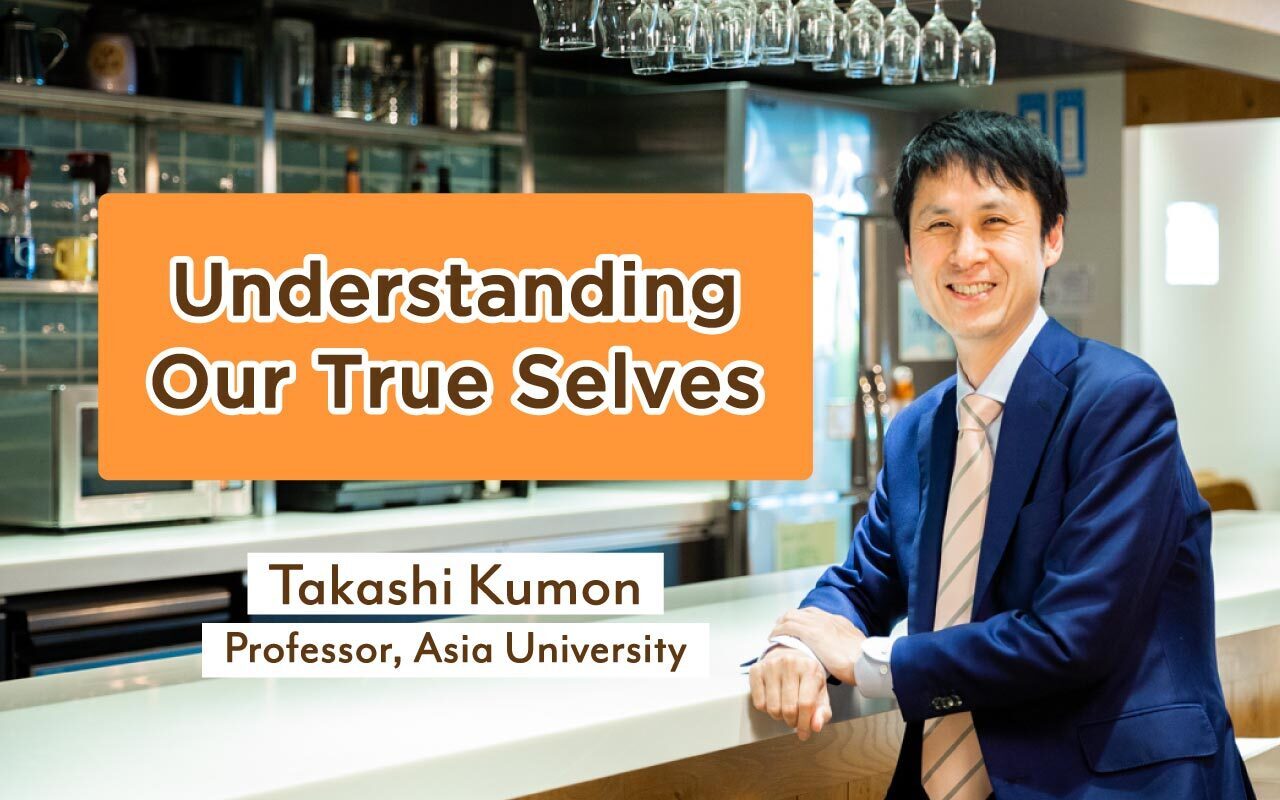
What do I want to do? Who do I want to be? We've all had these kinds of questions pop up in our minds, especially in the middle of a particularly boring meeting or routine task. Understanding our true selves is one of our biggest goals in life—the key to an independent, authentic lifestyle.
You might think self-understanding is the endpoint of an individual journey, but Professor Takashi Kumon of Asia University's Institute of Asian Studies would argue otherwise. According to a field of leadership research called "Being" education, Takashi says that understanding who we are requires us to mingle with diverse groups of individuals.
We met with Takashi and asked him about what "Being" education is, how diversity relates to self-fulfillment, and the obstacles we overcome when looking for our true selves.
Exploring your own values and beliefs
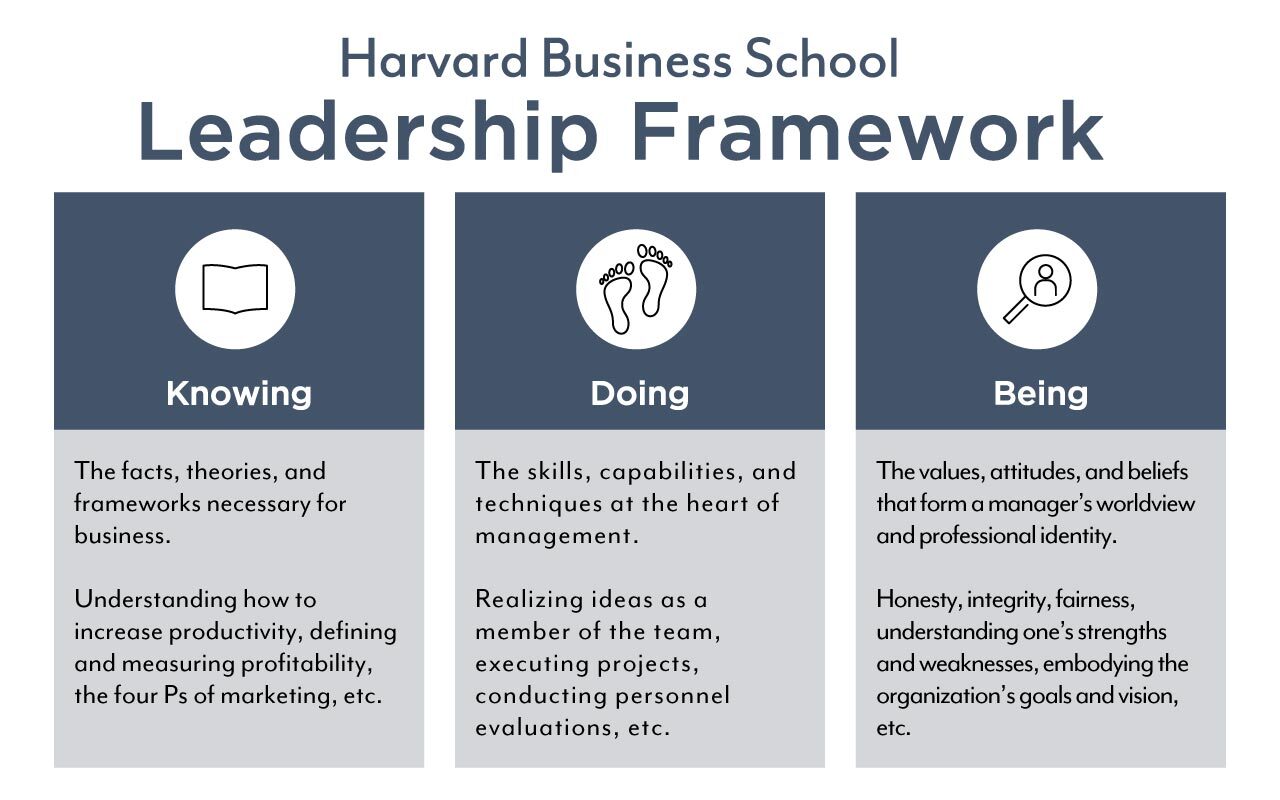
Source: Rethinking the MBA: Business Education at a Crossroads, by Srikant Datar, David A. Garvin and Patrick G. Cullen
In recent years, the "Being" component has grown increasingly important in leadership training. We've shifted away from previous training ideologies biased toward gathering lots of information, and toward training that emphasizes action, inviting us to explore our values and beliefs.
Also, "Being" education has benefits beyond leaders. Its lessons can be applied to anyone thinking deeply about their career and life choices.
Times are changing. Nowadays, you no longer have this singular track of first getting into a major university, then finding employment at a big company.
As the coronavirus pandemic has made even clearer, we live in an era in which nobody can predict what will happen next. Moreover, increased digitization is forcing us to ask ourselves, "What tasks can AI not do? What is it that only humans can do?"
None of these pressing questions have clear answers, and the best way to lead an adaptable life is to proactively make decisions that allow us to deepen our understanding of ourselves. "Being" education does just that, bringing us to ponder, "What do I really want to do? What is important in my life?"
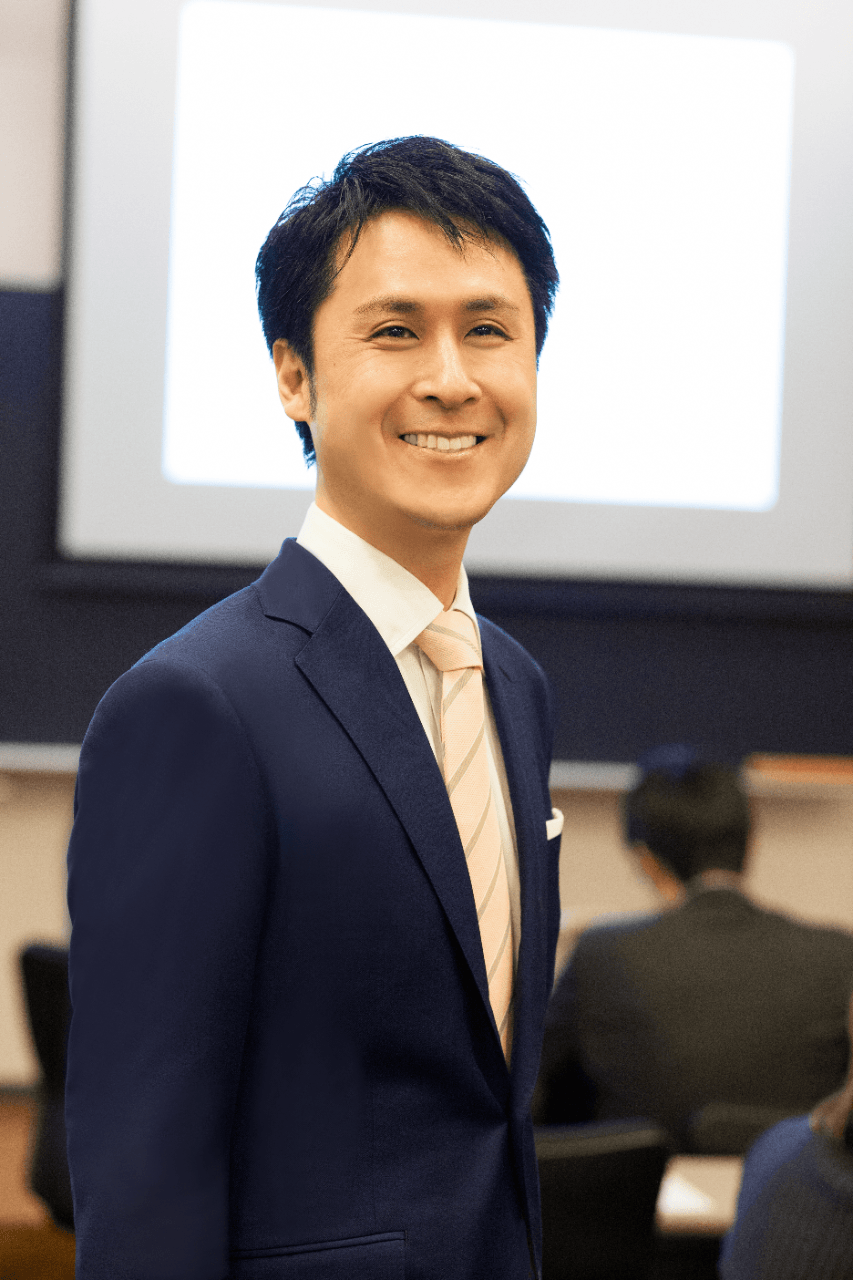
Takashi Kumon is a professor at Asia University's Institute for Asian Studies and a visiting lecturer at the University of Tokyo's Graduate School of Public Policy. His main areas of research are the employment of foreign talents and international students in Japan, global leadership development and career education. Takashi graduated from Keio University Faculty of Law and completed his master's degree in Public Policy at the University of Michigan, USA. After joining JETRO (Japan External Trade Organization), he completed a year-long program at Tsinghua University, China. He has also led several research projects on human resource management and business trends in China for JETRO. Prior to his current position, he was a project researcher at the University of Tokyo's Faculty of Engineering and a specially appointed professor at Asia University's Faculty of International Relations. His publications include "Why Do Foreigners Who Love Japan End Up Leaving? - The Japanese Workplace Through the Eyes of Elite Foreign Students" (Nikkei Business Publications) and "Working in Asia" (Eiji Press).
I had both cultures inside of me
It dawned on me in my mid-twenties, after I came back to Japan from studying abroad in the US and China. In the US, people would often ask me for my thoughts on various topics. If I couldn't come up with an opinion, no one would pay attention to me. At the time, I did my best to do things like improve my English and express my opinions more proactively, so I would fit in better with the Americans. Honestly, it was pretty difficult.
However, when I came back to Japan and started giving my opinions in the same way I had done in America, I was told I wasn't able to "read the room."
After a while, I came to realize and accept that my Japanese-ness or my American-ness didn't define me. Rather, I was made up of various elements.
When I was studying in the US, there were times when it was impossible for me to behave like an American, no matter how hard I tried. Frankly, that felt reassuring. Looking back, I realize I didn't have to act like an American, nor did I have to act like I'm Japanese. I gradually came to terms with the idea that I am who I am.
"Being" education is more than introspection
Let me give you an example from a program we ran during a joint lecture with both Chinese and Japanese students. The students were asked to think back to past incidents and write them down, alongside their motivations and feelings at the time. Then, the students gave each other feedback.
Through this process, the students had to think about what they value in life, and how those values linked to their career choices.

This Life Line is one of the exercises within "Being" education. It displays incidents and events the person has experienced to date, alongside their motivational state during each event.
In general, when you're conducting the type of self-analysis you would do when job hunting, you're setting yourself a short-term goal, like getting a job offer from your company of choice. What happens then is you extract only the elements necessary for job hunting, which can make it hard to see the bigger picture of your entire self.
In addition, when we do something like soul-searching, we assume that somewhere out there lies our true self, which is somehow different from our current self. In other words, we think there's this ideal answer and all we have to do is find our way toward it.
"Being" education is different because we get students to understand there is no right answer, and to realize the importance of fully accepting who they are right now. It's good for them to know that they are already living their lives with a certain set of values they deem important.
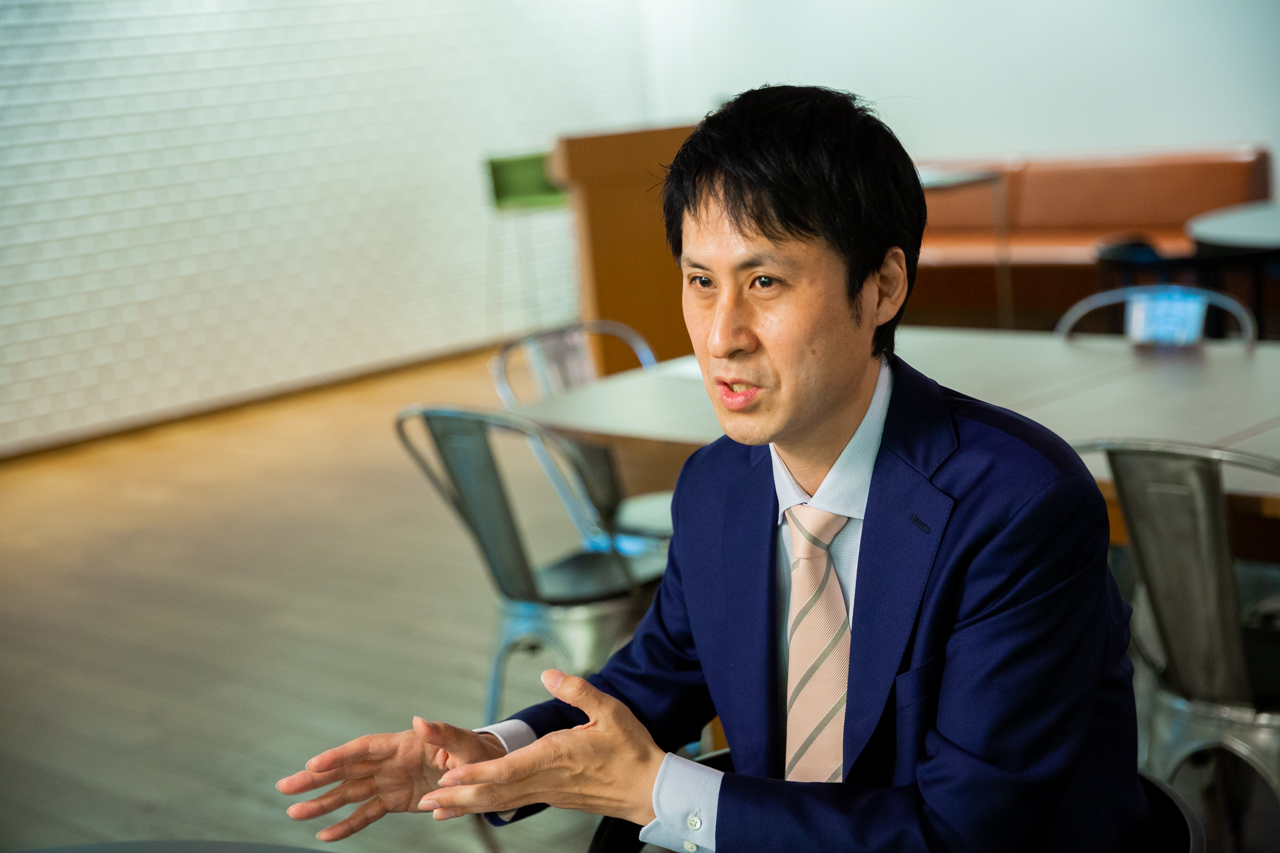
Diversity as a gateway to understanding oneself
First of all, they realize that they have value just the way they are, leading to an increase in self-esteem. Since I work mainly with foreign students, it's also a great opportunity for them to become aware of strengths and qualities they wouldn't have noticed had they stayed in their home countries.
For example, one of the reviews from a Japanese student during the joint lecture I mentioned earlier was, "I didn't really understand my own worth, and I lacked self-confidence. But by thinking back to the hardships I went through in school during my club activities and examinations, I became aware of the fact that I grew a lot as a person!"
Hearing that, a Chinese student then replied, "I was so absorbed in my studies, I didn't have any time for club activities. I'm envious that you got to enjoy your youth! Hearing your story has given me the courage to move forward with my life."
The Japanese student was shocked, thinking, "I had taken my life and behavior so much for granted that I didn't realize they could be seen in a positive light from a different perspective."
This type of self-realization wouldn't have been possible if our class only had Japanese students.
Absolutely. When people with similar values spend a lot of time in the same environment, they lose sight of what makes them different. They come to naturally assume other people think like them, which leads to the risk of them developing rigid, inflexible values.
On the other hand, when you bring together people from different nationalities, socio-economic backgrounds, ethnicities, and so on, you notice that being different is perfectly normal. Not only that, but it's the differences that constitute your unique individual characteristics and abilities. Once you notice them, you then have an opportunity to think about how to use them and collaborate with others in order to make the world a better place.
Losing yourself in a new culture
Adler's Five Stages of Culture Shock
1. The Honeymoon Stage
Cultural differences are easily visible and intriguing.
2. The Disintegration Stage
Confusion as you process the differences between your culture and the other culture.
3. The Reintegration Stage
The confusion gets worse as you begin to reject the other culture.
4. The Autonomy Stage
You become able to recognize cultural differences and similarities for what they are and respond to them flexibly.
5. The Interdependence Stage
You start to see cultural differences and similarities as a positive.
You start off in the Honeymoon Stage, where everything seems rosy, followed by the Disintegration Stage, also known as culture shock. Next you have the Reintegration Stage where you reject the other culture. Finally, you arrive at the Autonomy and Interdependence Stages, where you accept and are able to fully enjoy the differences and similarities between cultures.
In other words, the phenomenon you were describing—where you try to conform with a new culture—can indeed occur, but it's only part of the process of interacting with people from a different culture.
Diversity drives performance and innovation

I think it should be more of a priority. One of the reasons, as explained by Harvard Business School professor Amy Edmondson, is that organizations with a high degree of psychological safety, as well as high performance standards and business objectives, perform better. Not simply a loose organization with a lot of friendly people and no conflict, but specifically organizations where even during difficult conversations, everyone feels like they can express their opinions.
In addition, when diverse values are accepted within an organization, it becomes easier for members to showcase their individuality and abilities. You facilitate an environment where people can have really constructive conversations, making it easier to identify and solve potential problems. You also create opportunities to collaborate with people whose skills are different from your own.
Here in Japan, we're looking at declining birth rates and increasing global competition for talent. Why would talented employees want to work in such a physically and mentally taxing environment? GenZ especially values purpose and meaning in their work, with a strong desire to make society better.
I know a case of an SME from Osaka that was able to recruit top IT engineering talent from India by telling them, "In this job, you'll get to combine IT with Japanese manufacturing know-how to make the world a better place." That goes to show that even if companies are outclassed by larger firms when it comes to salary and benefits, they can still appeal to GenZ talent by offering inspiring and innovative work.
I think those are the companies that will end up with the best talent moving forward.

Rely on each other with empathy
The first step is to get out of your comfort zone. You don't have to do anything huge, like moving abroad or starting your own business—you can try something as simple as getting to know a person who was raised in a different environment, or advocated for changes in your own community.
When you start to make those small steps toward changing your environment, you may end up finding yourself thinking differently; discovering a new world.
Have you ever been in a situation where you've been in the same job for a few years, and felt like if you keep on doing the same thing, you won't be able to grow? That feeling could be a sign.
Of course, even if you summon your courage and step into a new environment, you won't necessarily begin to grow immediately. The important thing is to be kind to yourself. If you start beating yourself up, you risk losing sight of why you felt the need to grow in the first place. You have to show acceptance, including toward yourself.
Yes, accept that you are who you are, and think again about the reasons you want to grow. It could be as simple as, "I don't think I'm good enough at this one task," or "I would like to rid myself of this insecurity."
Once you understand why you want to grow, you're already halfway down the path toward acceptance.

I see. Even when you feel like you're losing sight of who you are, it's important to not deny what's happening, but rather to accept yourself.
What about at the organizational level? How do organizations address the challenges of people from different cultures mixing together?
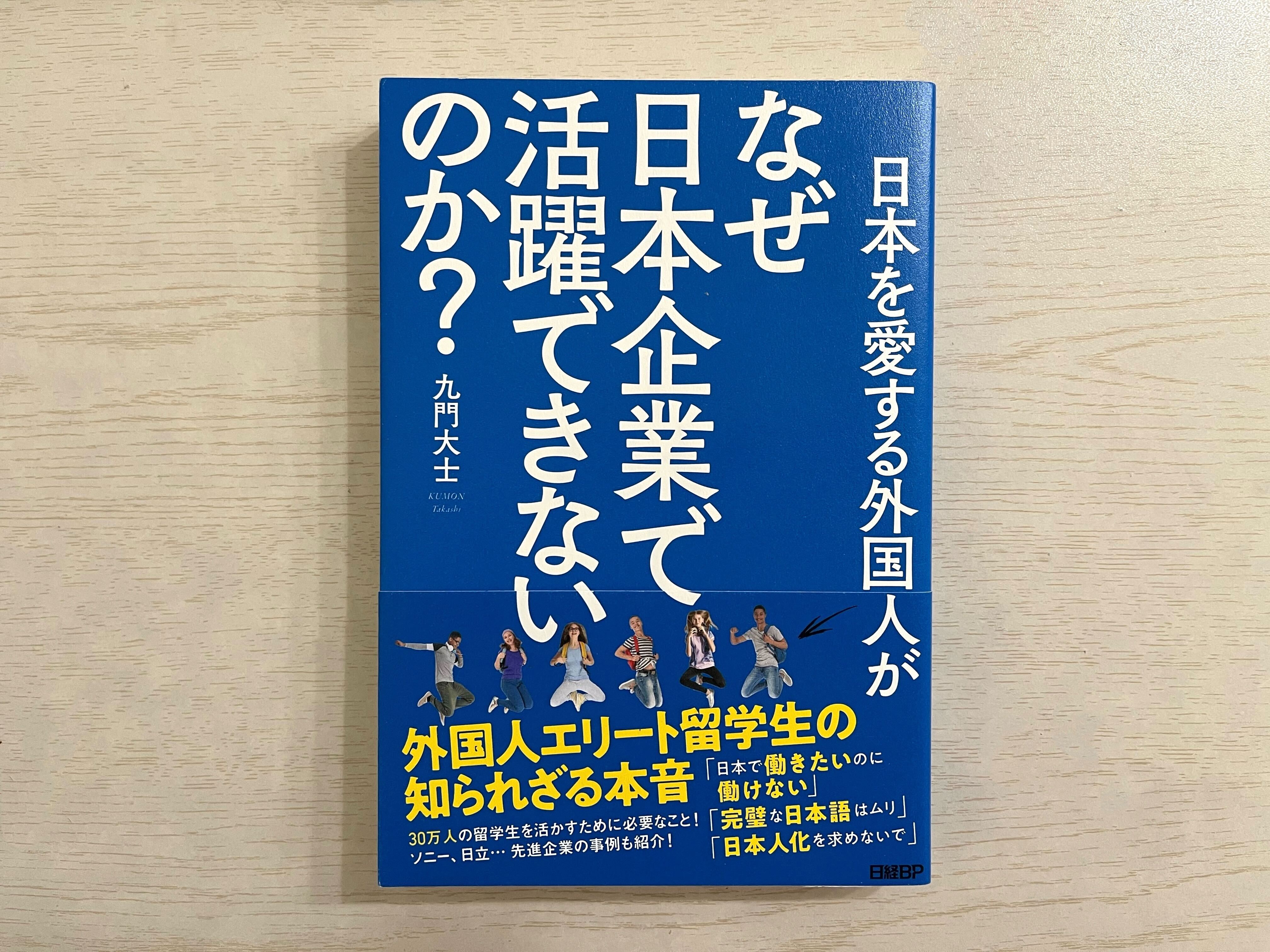
Original title: 『日本を愛する外国人がなぜ日本企業で活躍できないのか? 外国人エリート留学生の知られざる本音』(Nikkei BP). This book looks at the challenges Japanese companies face when trying to hire foreign talent and the future changes required.
You can replace "foreigners who love Japan" with "women," "unique individuals," "young people," and so on—the question would still be valid. I believe there is a problem with the way Japanese organizations operate. Once you become aware of that challenge, you can begin thinking of how to create collaboration among diverse individuals.
The key is empathy. When interacting with someone, learn to put yourself in their shoes. I believe that businesses, through better training and operations, need to further support empathy.
Written by Riho Nakamori. Edited by Takumi Nozaka. Photographs by Makoto Tochikubo. Article plan by Mina Samejima. Translated into English and edited by Ade Lee and Alex Steullet.
Editor

Alex Steullet
Alex is the editor in chief of Kintopia and part of the corporate branding department at Cybozu. He holds an LLM in Human Rights Law from the University of Nottingham and previously worked for the Swiss government.
